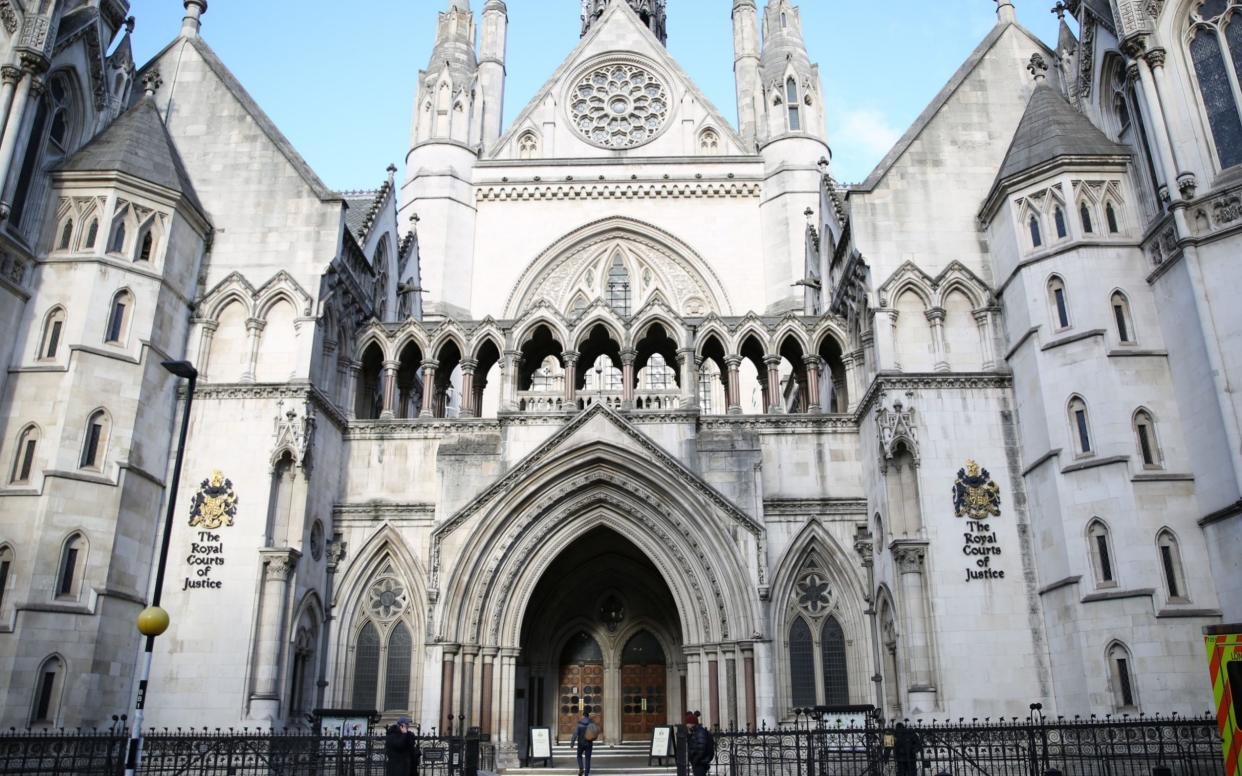Being a sex worker does not mean you can't have a private life, says judge as he grants escort an injunction

Being a sex worker does not disqualify you from having a private life, a judge has said, as he granted an injunction to an escort who has been harassed online.
The woman, known as GYH, has been caused considerable distress by online publications about her sex life, physical and mental health, the High Court heard.
These include allegations that she has HIV/Aids, which she says are untrue.
GYH brought proceedings in London against "persons unknown" as, despite extensive efforts, it has proved impossible to trace any individual who has posted the material.
The perpetrator is still unknown but is "most likely to be one male individual", the High Court heard.
On Tuesday, Mr Justice Warby said that an injunction was "amply justified" to restrain continued harassment of GYH and the misuse of private information about her.
The fact that GYH had publicised that she was an escort providing sexual services was relevant, but did not disqualify her from the protection given to private life, he added.
There is no public interest in the distribution of false information of this kind, nor is it reasonable to publish false allegations to this effect
She is an "active user of social media and maintains a Facebook profile, a YouTube Channel and a blog", the court heard.
It would be going too far to say that a person providing sexual services for reward as an escort had an unqualified right to decide what information could be made public, the judge said.
Mr Justice Warby added: "A person in that business may have to put up with some unwanted disclosures about themselves."
He added: "The claimant's role inevitably means that she is likely to have made public or placed beyond her control some information about her sexual life and, on the evidence, she plainly has done so.
"Someone who makes information about herself public may have no reasonable expectation of privacy in relation to that or similar information and hence no right to prevent others from disclosing it.
"It is well-established, however, that there is no question of a person waiving her right to privacy in a particular zone of her private life, merely by publicising some information falling within that zone."
The judge added that if a sex worker practised unsafe sex and had contracted HIV/Aids, yet continued to work, there would be a clear justification for warning those who might suffer the consequences.
But GYH stated that she did not practise unsafe sex and was HIV negative - and there was "credible uncontradicted evidence" that the allegations were false, the judge said.
He added: "There is no public interest in the distribution of false information of this kind, nor is it reasonable to publish false allegations to this effect. On the contrary."

In England, Wales and Scotland, prostitution itself is legal but related activities such as soliciting in a public place, kerb crawling, or owning or managing a brothel, are not.
The woman said the abuse began in December 2015 after she received a text message from someone claiming to be a student who wished to meet her socially but not pay for her services.
When GYH declined, the conversation deteriorated into abuse. She also received anonymous phone calls with further abuse.
Posts on a series of websites made allegations that she had spread sexually transmitted diseases, was anorexic and mentally ill, the court heard.
They use both her work name and legal name and also include specific and identifiable information about her and pictures, which are "often altered in an offensive manner".
After GYH's lawyers contacted a person thought to be responsible for publishing the websites, she was visited in July this year by someone who accused her of sleeping with his father.
He threatened her and said he would take the money back that his father had paid.

 Yahoo News
Yahoo News 
